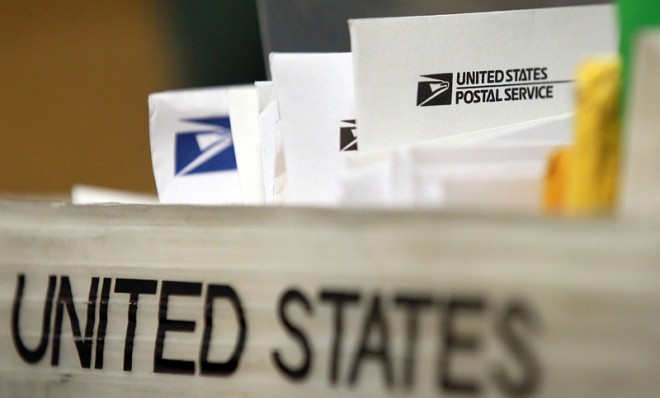Should the U.S. Postal Service stop delivering mail to your door?
A plan to phase out your friendly neighborhood postman would cut billions in losses


A free daily email with the biggest news stories of the day – and the best features from TheWeek.com
You are now subscribed
Your newsletter sign-up was successful
The House Oversight and Government Reform Committee on Wednesday signed off on a proposal to phase out door-to-door mail delivery that would save the money-losing U.S. Postal Service billions of dollars every year.
The plan calls for ending doorstep delivery to the 37 million customers who still get it, and making everyone (with possible case-by-case exceptions) pick up their mail at boxes in neighborhood clusters or at the curb.
Rep. Darrell Issa (R-Calif.), the committee's chairman, says the bill, which he introduced, would help reduce the Postal Service's losses, which totaled $16 billion last year. Issa said that his plan would save $4.5 billion per year, and that reviving a controversial effort to cut Saturday deliveries would save $2 billion more.
The Week
Escape your echo chamber. Get the facts behind the news, plus analysis from multiple perspectives.

Sign up for The Week's Free Newsletters
From our morning news briefing to a weekly Good News Newsletter, get the best of The Week delivered directly to your inbox.
From our morning news briefing to a weekly Good News Newsletter, get the best of The Week delivered directly to your inbox.
Figuring out how to stop the federal mail service from bleeding cash is an ongoing project in Washington. The USPS is already shifting new housing developments to cluster-box delivery. Delivery is the agency's biggest fixed cost, at $30 billion. Salaries and transportation add up to $353 per stop annually at the door, compared to just $224 for curb-side and $160 at cluster boxes.
The needs of the Postal Service's customers has certainly changed. Leslie Eastman argues at Legal Insurrection that it's just smart to hunt for more cost-efficient ways to deliver mail, "especially as more people rely on email and other forms of social media to advertise and otherwise communicate."
James Joyner at Outside the Beltway notes that 87 million customers already get their mail at the curb or a cluster box.
Shifting to clustered delivery where it’s reasonable and taking away the odd perk of door-to-door delivery would save billions of dollars with minimal inconvenience to customers. [Outside the Beltway]
That doesn't mean the proposal has no opponents. "It's madness," Jim Sauber, chief of staff for the National Association of Letter Carriers, tells CNN. "The idea that somebody is going to walk down to their mailbox in Buffalo, N.Y., in the winter snow to get their mail is just crazy."
A free daily email with the biggest news stories of the day – and the best features from TheWeek.com
The savings also wouldn't do much to stem the tide of the independent federal agency's red ink. Last year, the Postal Service twice defaulted on payments it was supposed to make to the federal government to prefund $11 billion in retiree health-care benefits. It has also burned through a $15 billion line of credit from the U.S. Treasury. Truly resolving USPS's money troubles, says Jennifer Liberto at CNN Money, would require Congress ending a mandate that USPS make massive payments toward those benefits every year.
That would be controversial, to say the least. As Scott Bombay notes at Constitution Center, even the less fraught question of whether to cut Saturday deliveries caused an uproar last year. "So fractious is the Postal Service question within Congress that it wasn't tackled last fall," he says, "despite the Service’s well-publicized financial problems, because of fears of a voter backlash during a presidential election year."
The latest plan, then, is but a partial solution that is likely to face a similar backlash. The fate of the USPS, as Postal Service Inspector General David Williams said earlier this year, may ultimately be between ceasing to exist or receiving a bailout.
Harold Maass is a contributing editor at The Week. He has been writing for The Week since the 2001 debut of the U.S. print edition and served as editor of TheWeek.com when it launched in 2008. Harold started his career as a newspaper reporter in South Florida and Haiti. He has previously worked for a variety of news outlets, including The Miami Herald, ABC News and Fox News, and for several years wrote a daily roundup of financial news for The Week and Yahoo Finance.



